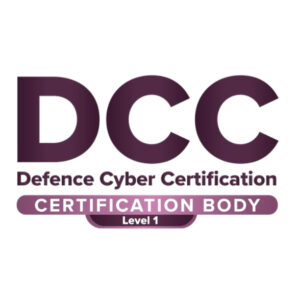GDPR Explained: A guide for small businesses
24th Nov 2017
Talk to our experts today
24th Nov 2017
The General Data Protection Regulation (GDPR) brings consistency to European-wide data protection laws and safe-guard consumer data in this age of constant connectivity and social media.
This new legislation is focused on giving consumers more control over their data and increasing the accountability of organisations.
No matter how small your business, you must comply with regulations for secure data collection, data storage and the use of personal information.
Don’t think for one minute that you can continue to use spreadsheets, these will not support the requirements of GDPR as they make it difficult to find and link data which will place you at risk of a breach under GDPR.
According to NCC Group, the Information Commissioners Office (ICO) issued fines in 2016 amounted to £880,500. Under GDPR this would have been £69 million, 79 times higher.
You also need to be aware that individuals affected by a breach can sue you for compensation. So, if recent ransomware attacks didn’t spur you into taking robust antivirus and cybersecurity measures, then GDPR and its associated fines certainly will!
GPDR will be much stricter in what is deemed as personal data. What’s more, breaches will incur penalties far larger than those currently in place under DPA.
The new fine will have an upper limit of €20 million or 4% of annual turnover – whichever is higher. The “whichever is higher” is the key phrase for SMBs, as you could be financially ruined by a breach.
No matter how small your business, you must comply with regulations for secure data collection, data storage and the use of personal information.
Don’t think for one minute that you can continue to use spreadsheets, these will not support the requirements of GDPR as they make it difficult to find and link data which will place you at risk of a breach under GDPR
If dealing with data is a routine occurrence within your organisation, you need to abide by GDPR. The ICO state that any businesses affected by the Data Protection Act (DPA) will also fall under GDPR.
The ICO has also stressed that the upcoming changes should be seen as an opportunity for a fresh approach in reviewing and building on current data protection measures.
Another plus to the introduction of GDPR is it will shield your business’ reputation further by forcing you to be responsible in the protection of your data, making it more diffcult for hackers and attacks.
It will also add strength to the supplier chains you are part of, larger organisations will almost certainly demand GDPR compliance from the partners they choose to work with – so being a strong link within that chain is vital.
Manage data in accordance with best practice to retain and gain business whilst protecting your reputation.
In a perfect world all data would be stored securely and processes would be in place to ensure personal data is kept separately under a security framework, but that’s just not reality as each individual employee could have an average of say 10GB of unstructured data, with around 10% of that containing Personally Identifable Information (PII).
When collecting or processing personal data your organisation, as well as your suppliers that handle data on your behalf, must apply these key points:
To help prepare we suggest taking the following actions:
IASME (Information Assurance for SMEs) Governance Accreditation is a straightforward and cost effective alternative to ISO:27001 that incorporates UK Government backed standards for Information Governance, baseline IT security and GDPR Readiness.
Once certified you receive badges that you can place on your website and communication to reassure your supply chain that you will not expose them to any undue security or GDPR risks.
In our capacity as an IASME accredited certification body, we can help you achieve your certification quickly and effectively. We offer a range of competitively priced IASME Packages to suit your budget, timeframe and level of experience.
Get in touch with our expert consultants for straight-talking, jargon-free technical security advice.













